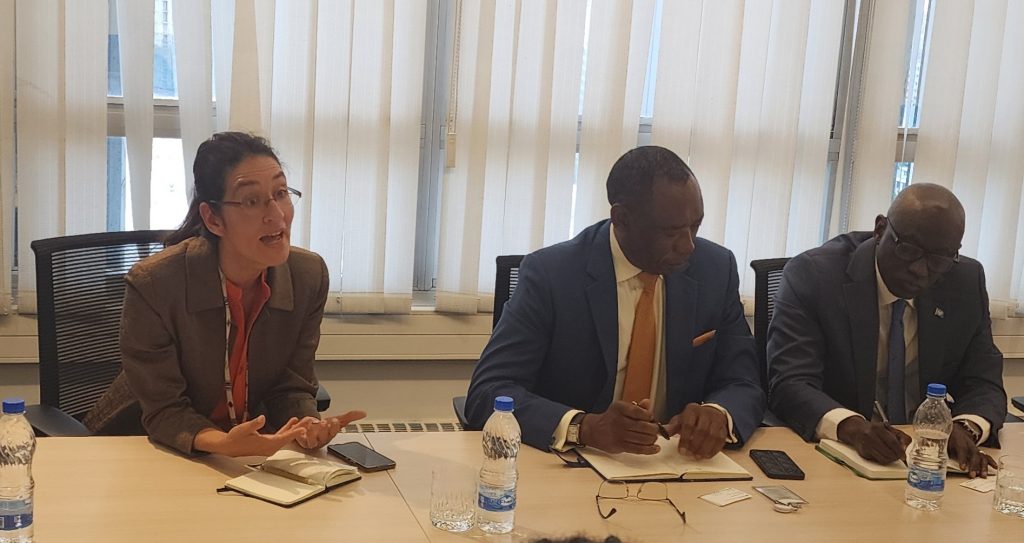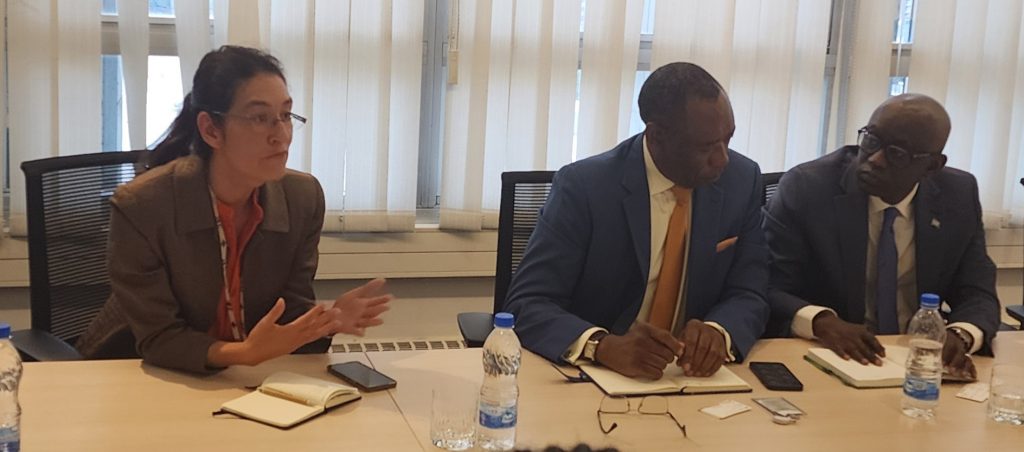Judges and Staff of the COMESA Court Of Justice Pay a Courtesy Call on the United Nations Economic Commission for Africa
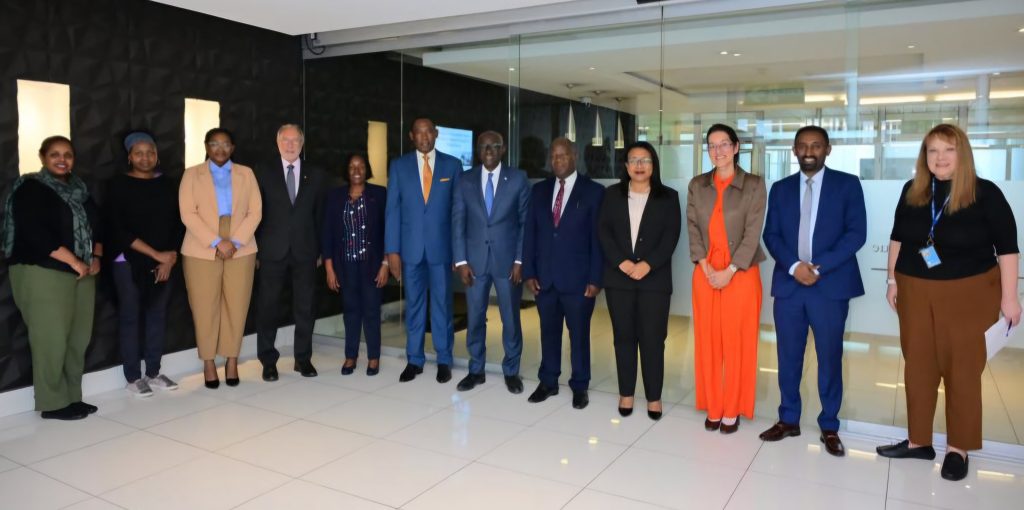
![]()
The Judges and Staff of the COMESA Court of Justice paid a Courtesy Call on the United Nations Economic Commission for Africa (UNECA) on 14 August 2024, in Addis Ababa, Ethiopia. The Judges met with Mr Oliver Chinganya, the Director of the Africa Centre for Statistics who spoke on behalf of the UNECA Executive Secretary and Mr Alhagi Marong, the Secretary of the Commission. Other Senior Officials of UNECA in attendance were Ms Laura Paez Heredia, the Chief of Section – Regional Integration and Trade Division, Ms Cynthia Cline, the Legal Officer and Ms Mercy Wambui, the Head of Communications.
The COMESA Court of Justice delegation was led by Hon. Dr. Justice Michael Mtambo, Hon. Justice Bernard Georges, Hon. Justice Salohy Randrianarisoa, the Registrar, Hon. Nyambura Mbatia, the Legal Officer, Ms. Mutinta Chinganya-Mulenga and the IT Officer, Mr. Bedlu Asfaw.

The Courtesy Call was to promote synergy and collaboration between the COMESA Court of Justice and UNECA. The Director of the Africa Centre for Statistics, Mr Chinganya, informed the Court that UNECA focuses on three main areas, namely: being a think-tank for Africa through undertaking research on the needs of African countries for their financial and developmental strategies; to convene meetings with the Ministers responsible for finance and economic development in Member States; and to provide capacity building in Member States through providing technical assistance, seminars, training workshops on trade, regional integration, climate change, statistics, and micro economic development, among others. He further highlighted that the UN established the African Institute for Economic Development and Planning (IDEP) situated in Dakar, Senegal, which provides capacity building and training programmes on governance, trade, and regional integration, among others. He noted that training was one possible area of collaboration between the COMESA Court of Justice and the IDEP, which proposal the Court welcomed.
The Secretary of the Commission, Mr Alhagi Marong, stated that the mandate of the legal department of the UNECA involved administering international law in relation to the UN and its Member States, as well as developing its internal law. He stated that the UN internal law was the law of the UN which deals with the administrative issues of the UN. He further informed the Court that the UN had developed a robust administrative law regime and jurisprudence.
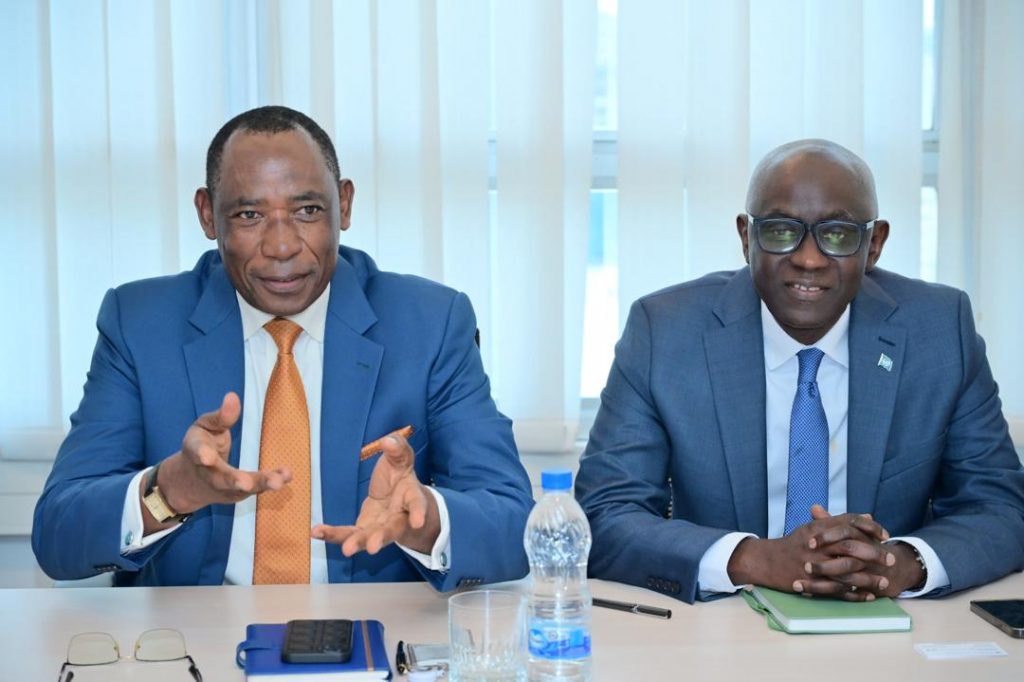
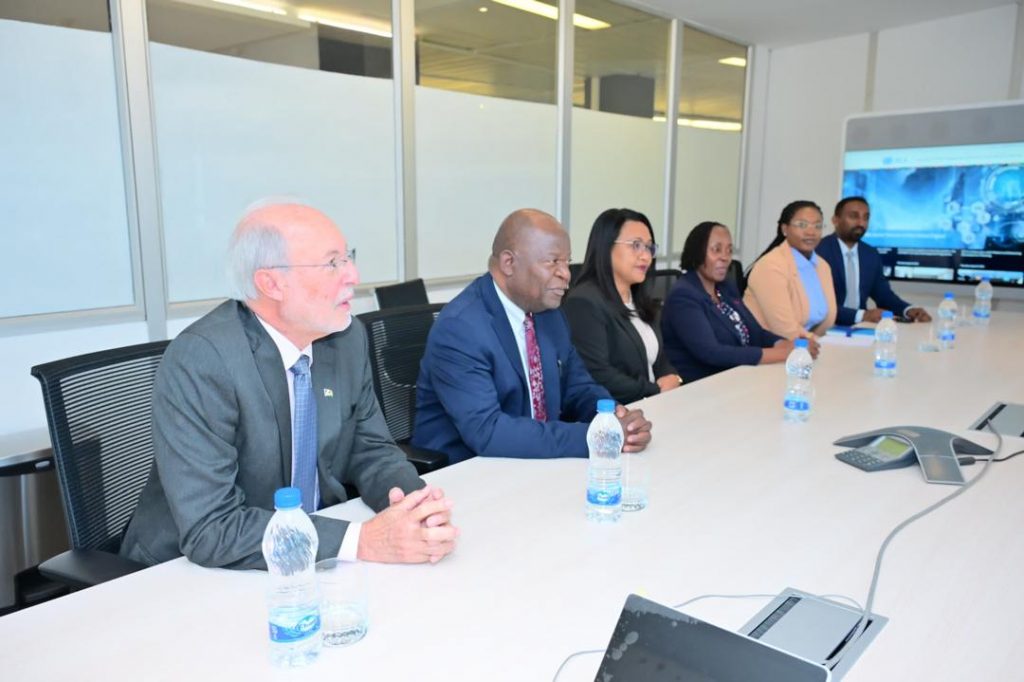
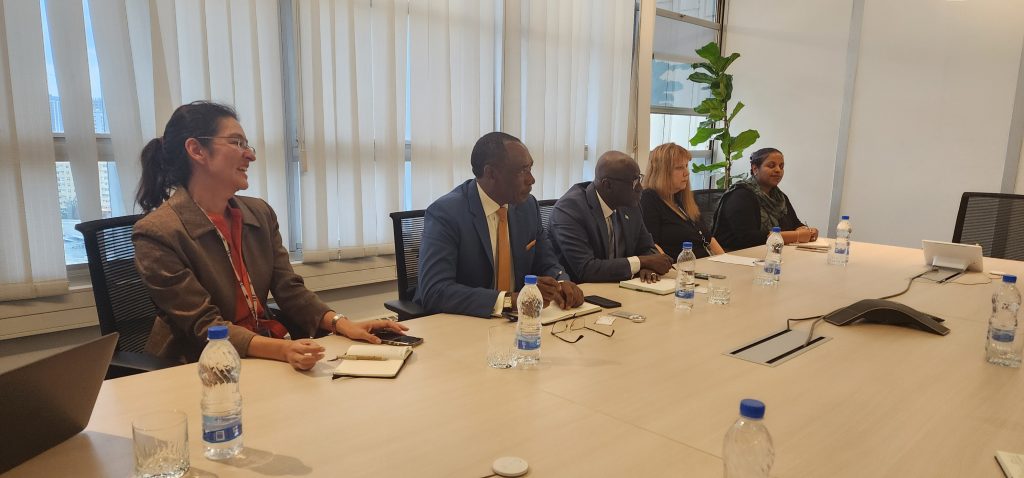
Justice informed the UNECA Officials that the COMESA Court of Justice was developing Community law which provided another avenue for synergy and sharing of knowledge with UNECA and its UN internal law. Justice Georges further proposed that UNECA could consider training young professionals in trade and regional integration to increase the pool of African experts in these areas.
The Registrar stated that the tenure of the current Judges of the Court was coming to an end in June 2025 and that a new bench of Judges would be appointed. She informed the UNECA Officials that the training on regional integration and trade with the IDEP would be opportune for the new judges. She expressed her delight to have the training as an opportunity for collaboration with UNECA.
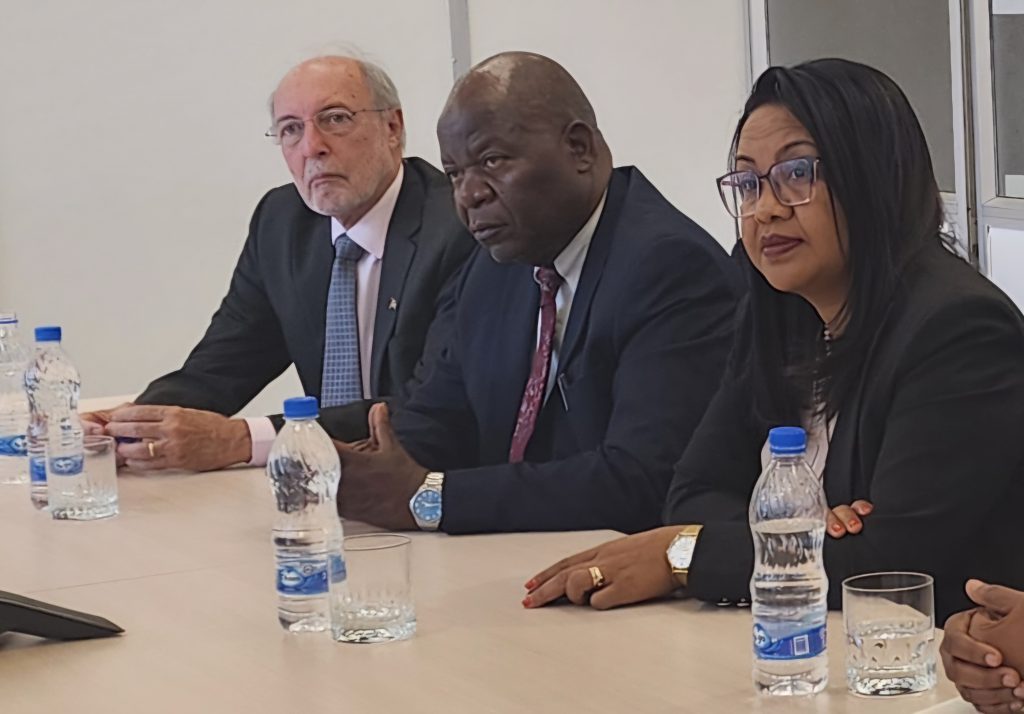
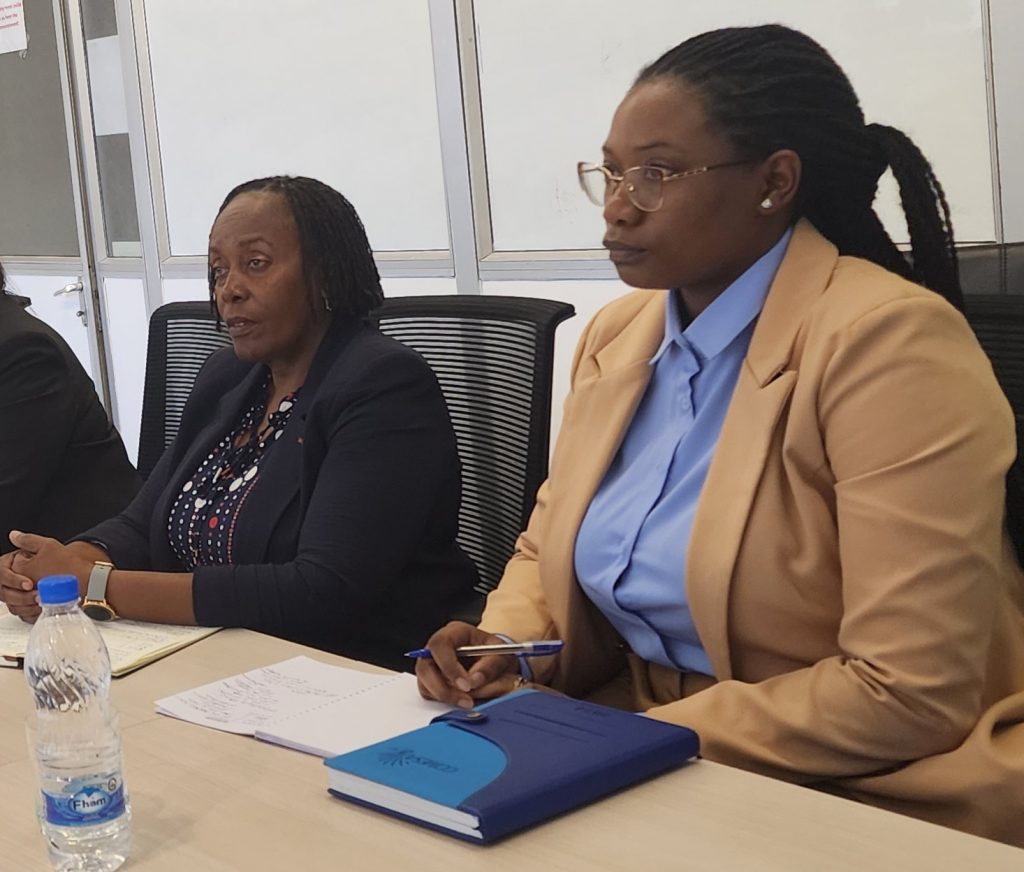
The Chief of Section, Ms Laura Paez Heredia, informed the Judges that UNECA provided technical assistance to the African Union Commission (AUC) and the Secretariat of the African Continental Free Trade Area (AfCFTA) in the implementation of the AfCFTA strategies. The Registrar noted that regional courts needed to be part of the discourse on the implementation of the AfCFTA as there were no clear guidelines on the role regional courts would play in handling disputes in the AfCFTA. The meeting noted that this was an opportunity for the COMESA Court of Justice to create discourse with Member States and other regional courts on the implementation of the AfCFTA.
